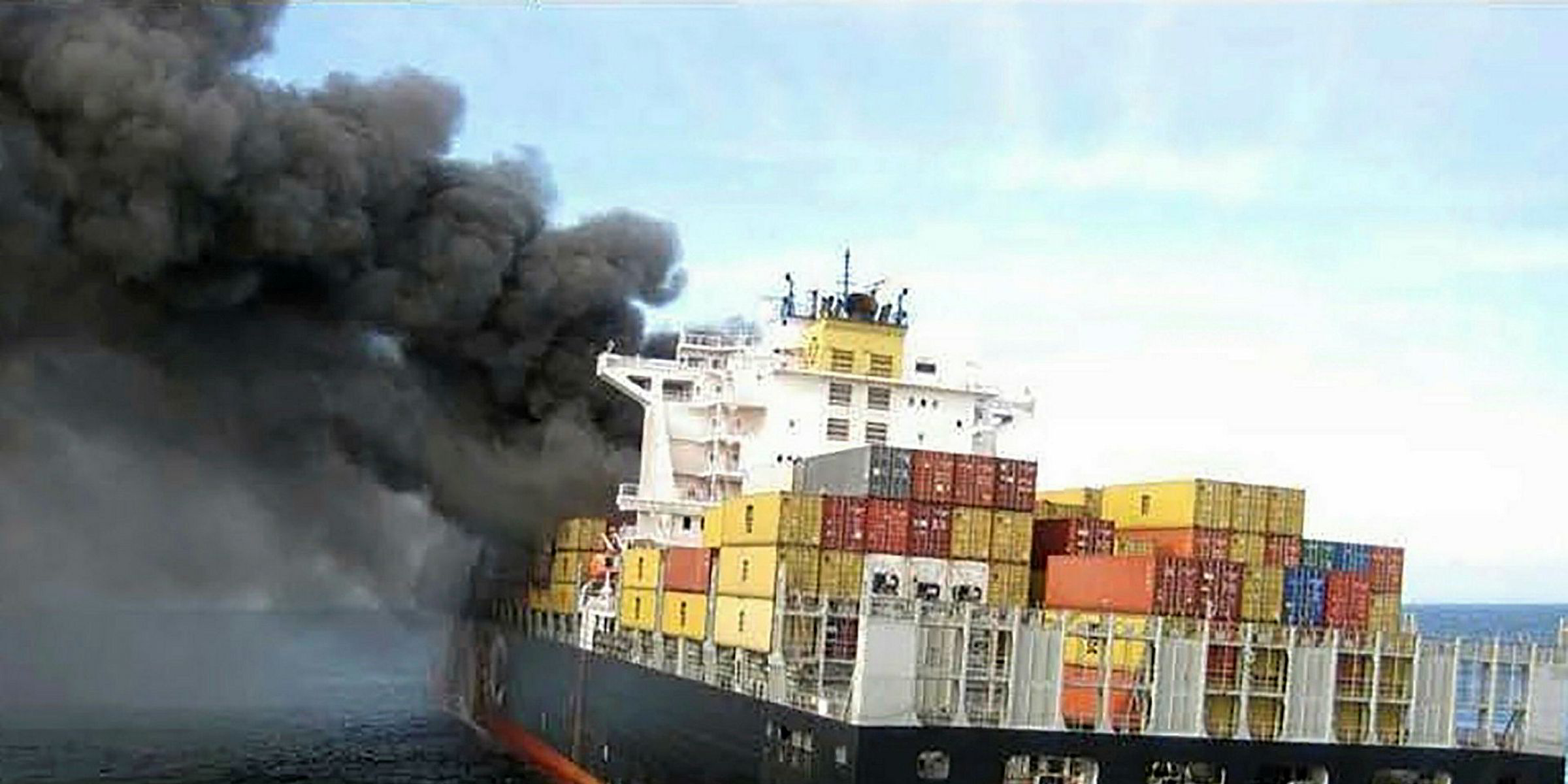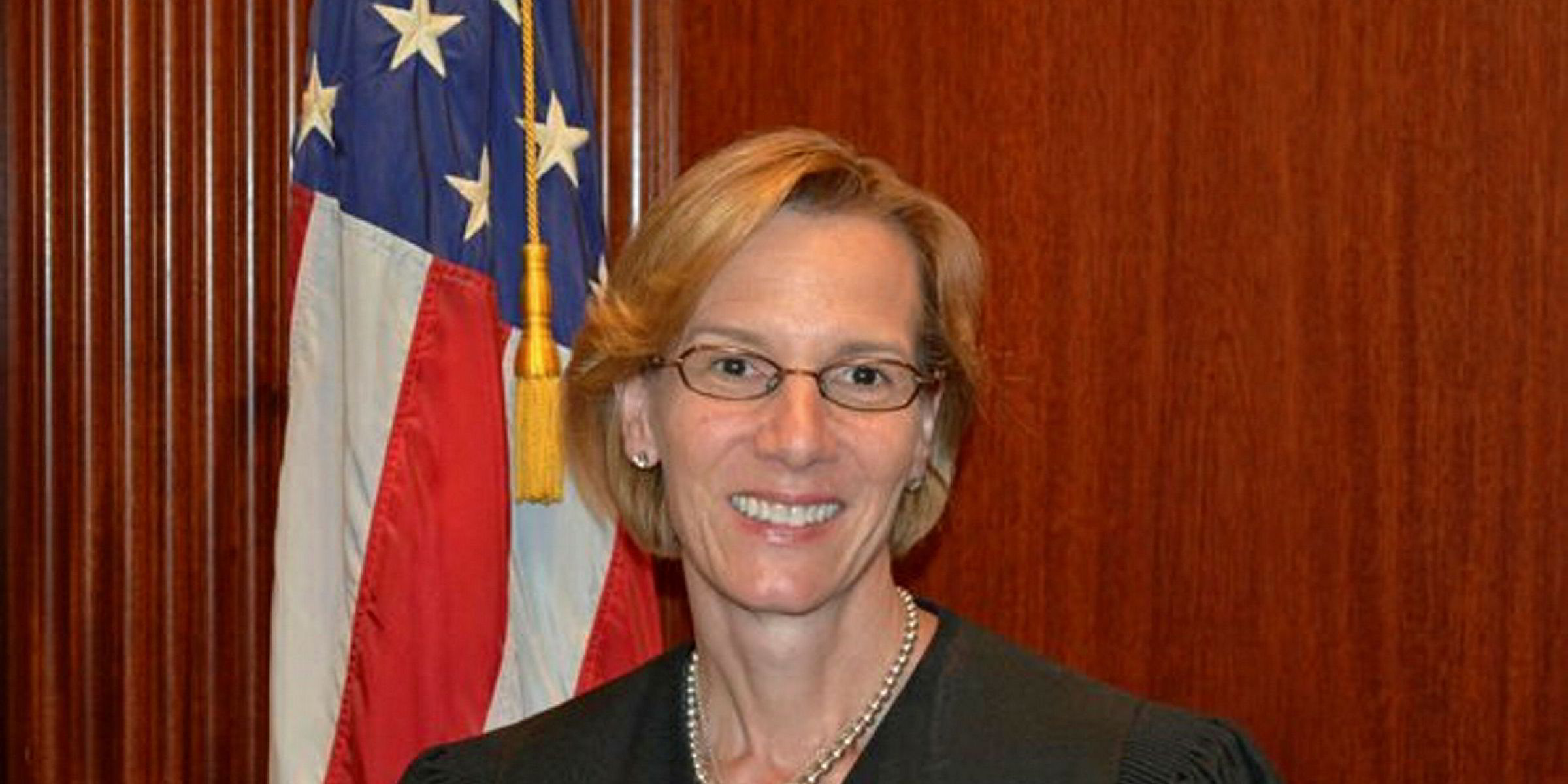All five groups locked in a bitter legal fight over a chemical explosion that ripped apart a containership operated by Mediterranean Shipping Co (MSC) five years ago are thought to be facing a share in the estimated $280m liability after a key court ruling.
A judge in New York has signalled that the remaining litigants in the MSC Flaminia case could face a share of the bill over the fire that crippled the boxship and killed three crew members.
The order by US District Judge Katherine Forrest, while not making any decision about ultimate liability for the incident, lays out a series of conclusions about the events leading up to the casualty that make it clear the finger is not likely to point to a single party.
Maritime lawyers tracking the case say Oslo-listed Stolt-Nielsen and US chemicals manufacturer Deltech, the two companies tied to the hazardous chemical that exploded on the ship, are likely to have breathed a sigh of relief after the ruling. However, neither is out of the woods.
The decision means all remaining parties in the court fight are exposed to liability, including the ship’s charterer, Swiss liner giant MSC, as well as German shipowner Conti and technical manager NSB Niederelbe.
District Judge Katherine Forrest ruled that the following were “substantial contributing factors” in the explosion on the MSC Flaminia:
- The decision to ship the DVB cargoes from New Orleans Terminal (NOT) instead of a northeastern port
- DVB cargoes were left in the sun at NOT for 10 days
- The placement of DVB in a cargo hold near contained heated cargoes of diphenylamine and the ship’s heated fuel tanks
- The lack of proper ventilation in the hold, which led to “hotter-than-typical” temperatures
“It was a very good day for Deltech and Stolt,” an observer said.
The decision comes more than five years after the 6,732-teu MSC Flaminia (built 2001) suffered an explosion that caused hundreds of millions of dollars of damage to the boxship and its cargo, in addition to the loss of life.
The blast is believed to have started within containers of the chemical divinylbenzene (DVB) manufactured by Louisiana-based Deltech, which hired Stolt-Nielsen’s Stolt Tank Containers to carry them to Europe. DVB is a monomer that, when exposed to heat, can become a polymer in a violent chemical reaction.
Several lawyers tell TradeWinds that a decision by Forrest finding problems with the cargo in the three containers before they arrived at MSC’s New Orleans Terminal for loading would have been a blow to both Stolt and Deltech.
Instead, Forrest said the DVB arrived at the terminal in an “appropriately oxygenated state” and was adequately chilled. But the containers languished in the sun at the port for days and then were exposed to high temperatures while on the MSC Flaminia, she wrote.
She found that the presence of a heated cargo of another chemical shipped by Chemtura was a “substantial contributing factor”, and the vessel’s hold was near the ship’s heated fuel tanks and lacked sufficient ventilation.
When a white cloud of gas vented from the DVB and triggered an alarm, the ship’s crew missed an opportunity to prevent the explosion.
“The reasonable crew response to what crew members believed was an ongoing fire then created a spark that triggered the explosion,” Forrest wrote in the 78-page ruling.
The multitude of factors that contributed to the tragedy have led some in US legal circles to speculate that the judge’s decision could push the parties closer to a settlement, particularly as their insurers face the prospect of a trial that is scheduled to continue well into next year.

“No one gets away unscathed,” one legal source said. “That’s why I think it’s a roadmap to settlement.”
But other experts contend that a settlement does not look likely in the immediate aftermath of the decision. One lawyer noted that MSC’s side has rejected settlement discussions.
Others are less convinced that Forrest’s decision alters the course of trial, given that two of three phases remain before each company’s liability is decided.
Giuliano, McDonnell & Perrone lawyer Joseph Perrone, who represents Deltech in the case, says the multitude of parties still facing potential liability following Forrest’s decision is unsurprising, given that cargo interests with no blame in the incident have already reached a settlement with his client and Stolt.
“I don’t think, from any party’s perspective, it changes anything,” he said.
TradeWinds tried to contact all the major parties for comment.




